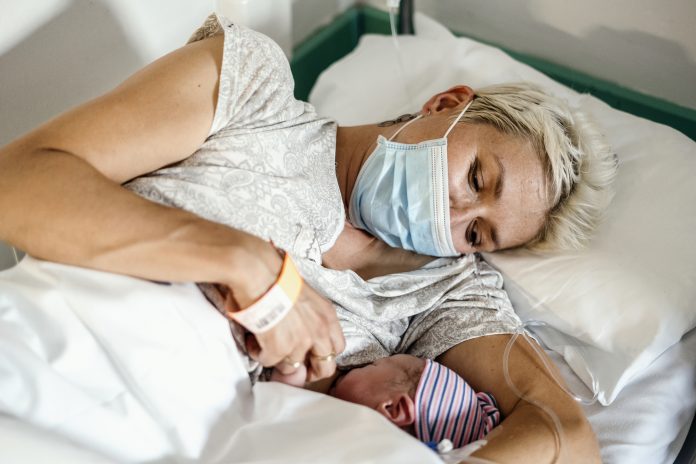Early into the COVID-19 pandemic, almost half of all parents in the UK reported negative experiences of giving birth – due to restrictions and poor communication
During a time of anxiety and uncertainty, as well as a lack of communication from doctors, parents giving birth across the UK bared the brunt of COVID health restrictions and pandemic anxiety in hospitals.
As a response to COVID-19, March 2020 saw the UK’s first national lockdown, and NHS trusts began to suspend home birth services as resources were diverted to the pandemic – often required to draw up their own guidance on access to maternity services and birth partners, based on government guidelines.
Looking at how healthcare, social restrictions and government guidance impacted the lives of those giving birth in 2020, researchers found that parents’ experiences of giving birth during the pandemic may have been very negative due to a lack of communication.
“Some NHS trusts created Facebook or WhatsApp groups where people could ask questions – and that helped expectant parents feel a bit more at ease in such an uncertain time”
Lacking communication with doctors and being unable to predict whether them or their baby would contract COVID-19 – as well as the health complications which came with getting COVID, the childbirth experience for many parents was anxious and negative, overall.
Where many women reported feeling a lack of control over their birthing experience, only 33% of parents during 2020 said they had a positive experience – with less than 20% having a ‘neutral’ experience of giving birth in England during this time.
Home births were stopped under the NHS, during early pandemic stages
Published in the journal BMC Pregnancy and Childbirth, the study suggests that the negative childbirth experiences of childbirth were mostly linked to a loss of choice and control, and lack of clear communication from healthcare providers.
During September 2020, the NHS issued guidance to individual NHS trusts to reintroduce access for partners, visitors, and other supporters of pregnant women in English maternity services – however this was adopted inconsistently and may have contributed to the stress mothers felt while giving birth.
In December 2020 this guidance was revised again to unequivocally allow in-person support for women throughout their maternity journey, including antenatal visits, ultrasound scans, and while giving birth – but this wasn’t always available from the beginning.
For the study, researchers conducted an online survey from July 2020 to March 2021, from 477 families. Parents living in England with an infant between the ages of 0-6 months were asked to report on their recent experience of giving birth.
Sarah Lloyd-Fox, senior author of the paper from the University of Cambridge’s Department of Psychology, said: “Many expectant mothers said that the constant changes to government guidance caused them heightened anxiety and distress, in particular because they didn’t know whether they could have a birth partner with them during labour and birth.
“Choice and control are so important in women’s childbirth experience – and lack of both during the pandemic restrictions in 2020 had an adverse effect on the experiences of many pregnant women in England.”
Due to COVID restrictions, only 2.3% had no birthing partner present at the time of the birth
Parents reported mixed experiences of communication from hospitals and midwives prior to the birth of their child – where some people received almost no communication, which added to their anxiety, and others received very clear information about what to expect at the birth while pandemic-related restrictions were in place.
40% of respondents said they had been uncertain about whether their birthing partner would be allowed to attend the delivery of their baby. Another 25% of respondents reported COVID-related changes to the delivery of their baby.
Ezra Aydin, first author of the paper in the University of Cambridge’s Department of Psychology, said: “This study highlights the importance of good communication in giving women the feeling of control over their childbirth experience, and mitigating the anxiety they feel.
“When restrictions due to the pandemic were changing from one moment to the next, some NHS trusts created Facebook or WhatsApp groups where people could ask questions – and that helped expectant parents feel a bit more at ease in such an uncertain time.
“When families were provided with support, and had input into decision-making about the birth, they reported a more positive experience – with reduced levels of anxiety and stress.”
Another factor which reduced parents’ feelings of control was the suspension of home births and birthing pools during early 2020 restrictions, which stopped most personal choice about baby delivery. Some women also reported difficulties accessing pain-relief and assistance when giving birth too, adding to the anxiety of their condition.
Overall, the study’s findings demonstrate that consistent guidance is necessary to be in place for expectant women giving birth during future lockdowns and public health crises – including allowances for choice of delivery methods, and the availability of consistent support for the duration of the labour and birth.











